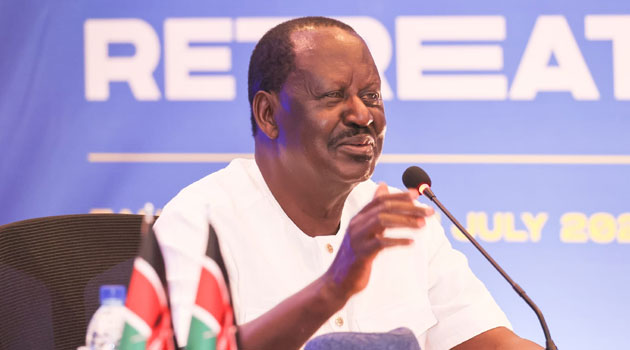
Raila roots for compensation of victims in anti-govt protests as path to national healing » Capital News
NAIROBI, Kenya, June 1 — ODM leader Raila Odinga has called on the government to compensate victims and families of those who lost their lives or were injured during last year’s youth-led anti-government protests and previous demonstrations.
The protests, some of which turned violent, left several people dead and many more injured.
Speaking on Sunday during the 62nd Madaraka Day celebrations in Homa Bay, Raila welcomed recent gestures of contrition from the government, including public apologies made by President William Ruto and National Assembly Speaker Moses Wetangula during this week’s National Prayer Breakfast.
However, the former Prime Minister insisted that more needs to be done to address the pain and loss experienced by Kenyans during the demonstrations.
“This week, there were apologies being made — the Speaker and yourself — which is wonderful as a first step to reconciliation,” Raila said, directly addressing President Ruto.
“But then there’s the issue of people who were injured and some who died during that time. I want to say today that we should compensate the families of those who died and those who were injured so that we can have closure on this chapter in our national history.”
Raila emphasized that the country’s leadership wants all Kenyans to live in peace and unity.
His plea comes at a time when human rights organizations and civil society groups have repeatedly called for justice for the victims — including demands for investigations, accountability, and compensation.
On May 28, President Ruto extended a public apology to the Gen Z generation for the atrocities committed against them in the recent past, and urged them to focus on unity rather than blame.
Apology at prayer breakfast
During the National Prayer Breakfast, the President acknowledged Gen Z’s frustrations over unfulfilled government promises, particularly following the widespread protests against the 2024 Finance Bill, which proposed steep tax increases amid a high cost of living.
The government’s response to the protests drew sharp criticism, with accusations of police brutality, including the use of live ammunition, fatalities, injuries, and reports of abductions and enforced disappearances of activists.
“We want to apologize to our children — if there’s any mistake — and to our neighbors, if there’s anything we’ve done wrong,” said President Ruto.
“We want to build relationships that will make our country great, and will take us forward — together, as one.”
He urged Kenyans to move away from fault-finding and instead focus on building bridges, praising the formation of a broad-based government that now includes members from the opposition, led by Raila Odinga.
“We now have a broad-based government that brings in more people, more citizens, into one ecosystem where we can plan together and work together for the greater good of our nation,” he said.
“I want to paraphrase the word of God: ‘How good and how pleasant it is for brethren to live together in unity.’”
Deputy President Kithure Kindiki echoed the call for intergenerational harmony, emphasizing that no generation is superior to another and urging mutual respect.
“Even as we respect them, hear them, and apologize when we are wrong, they should also respect older people — even if for no other reason than the fact that they are older,” Kindiki said.
“There are things you will not learn in any college, but only in the school of life.”